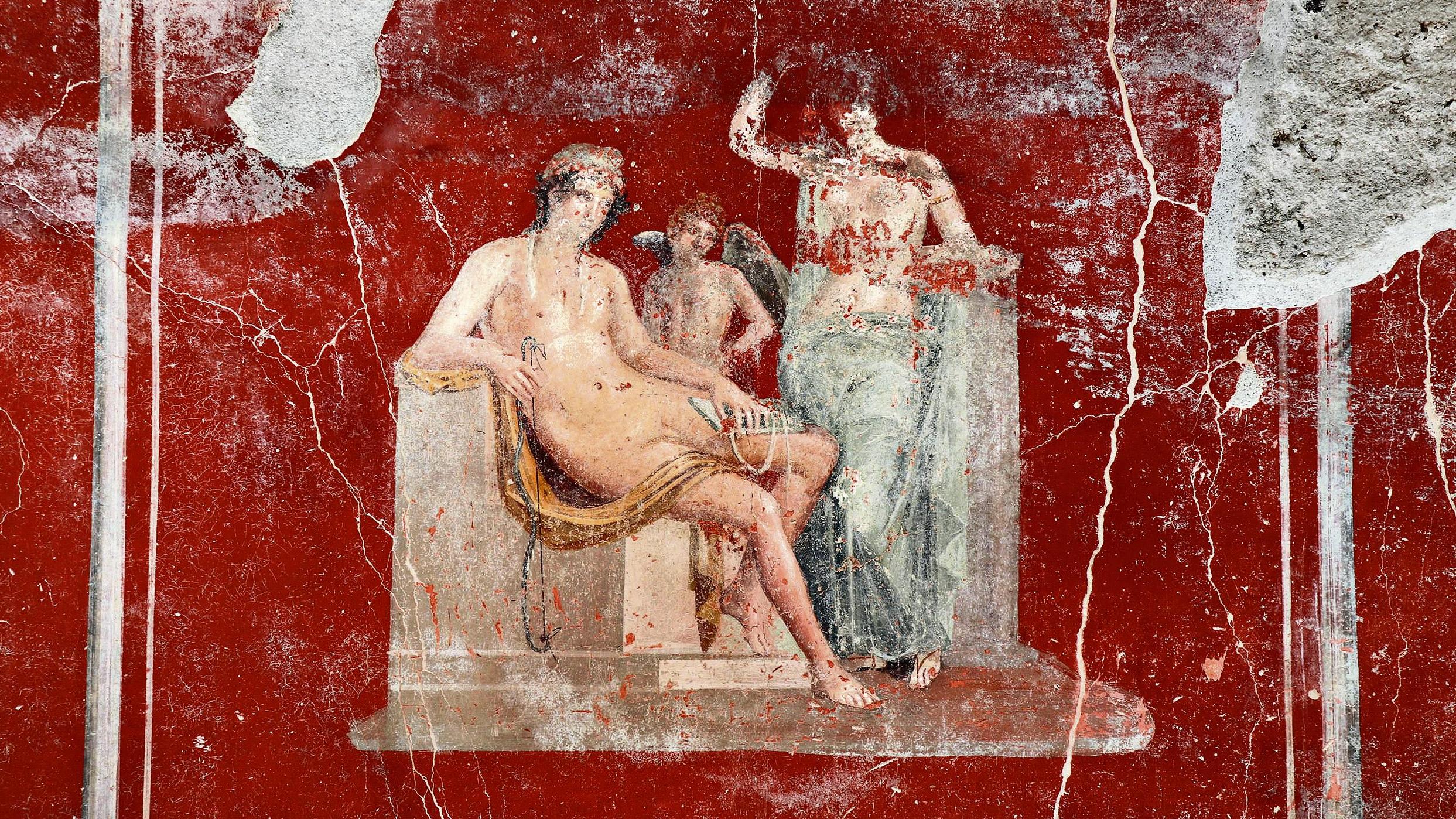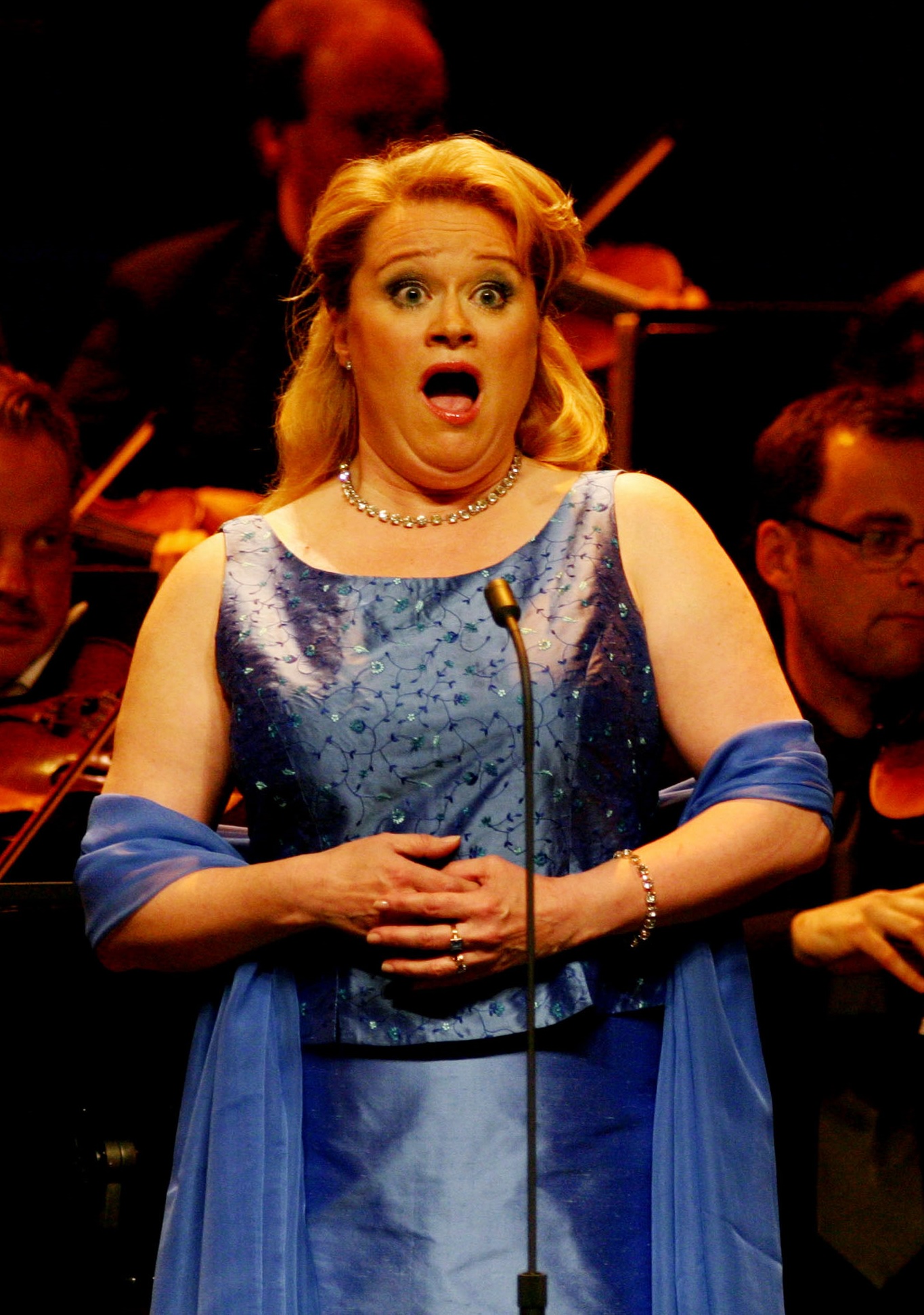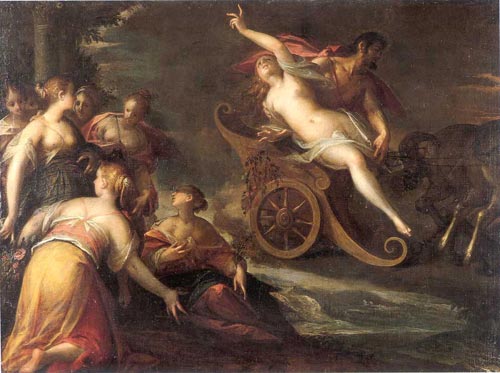|
Proserpin (Kraus)
''Proserpin'' is a Swedish-language opera by Joseph Martin Kraus to a libretto by the poet Johan Henrik Kellgren following a plot drafted by Gustav III himself from Philippe Quinault's Proserpine. The opera was premiered at Ulriksdal Palace on 6 June 1781 for one performance. The opera was revived at the Drottningholm Theatre in 1980 under Arnold Östman. The opera was performed with a new German libretto at the Schwetzingen Festival in 2006. Kraus wrote to his parents on 20 June 1780 that he had received from the King's secretary a text by "the best poet in Sweden"; by 14 September he wrote again that he had almost finished the score. By the following March Kraus was able to report that his opera was in rehearsal, although there were subsequent delays before the June premiere.Swanson, Alan. Kellgren's Libretto to Prosperin. In: ''Gustav III and the Swedish stage – Opera, theatre, and other foibles. Essays in Honor of Hans Åstrand'' (ed. van Boer, Bertil H, Jr). The Edwin Mell ... [...More Info...] [...Related Items...] OR: [Wikipedia] [Google] [Baidu] |
Joseph Martin Kraus
Joseph Martin Kraus (20 June 1756 – 15 December 1792), was a German-Swedish composer in the Classical era who was born in Miltenberg am Main, Germany. He moved to Sweden at age 21, and died at the age of 36 in Stockholm. He has been referred to as "the Swedish Mozart", and had a life span very similar to Mozart's. Life Childhood Kraus was born in the South German town of Miltenberg in Lower Franconia, the son of Joseph Bernhard Kraus, a county clerk in the Archbishopric of Mainz, and Anna Dorothea née Schmidt. His father's family, originally from Augsburg, had a small restaurant in Weilbach near Amorbach, while his mother was a daughter of the master-builder at Miltenberg Johann Martin Schmidt. They had 14 children, of whom seven died in childhood; Marianne Kraus was a sister of Joseph's. After a short stay in Osterburken, the Kraus family moved in 1761 to Buchen (in the Odenwald), where Joseph Bernhard Kraus found a position as a clerk. Joseph Martin Kraus began his f ... [...More Info...] [...Related Items...] OR: [Wikipedia] [Google] [Baidu] |
Adonis
In Greek mythology, Adonis, ; derived from the Canaanite word ''ʼadōn'', meaning "lord". R. S. P. Beekes, ''Etymological Dictionary of Greek'', Brill, 2009, p. 23. was the mortal lover of the goddess Aphrodite. One day, Adonis was gored by a wild boar during a hunting trip and died in Aphrodite's arms as she wept. His blood mingled with her tears and became the anemone flower. Aphrodite declared the Adonia festival commemorating his tragic death, which was celebrated by women every year in midsummer. During this festival, Greek women would plant "gardens of Adonis", small pots containing fast-growing plants, which they would set on top of their houses in the hot sun. The plants would sprout, but soon wither and die. Then the women would mourn the death of Adonis, tearing their clothes and beating their breasts in a public display of grief. The Greeks considered Adonis's cult to be of Near Eastern origin. Adonis's name comes from a Canaanite word meaning "lord" and most mod ... [...More Info...] [...Related Items...] OR: [Wikipedia] [Google] [Baidu] |
Compositions By Joseph Martin Kraus
Composition or Compositions may refer to: Arts and literature *Composition (dance), practice and teaching of choreography *Composition (language), in literature and rhetoric, producing a work in spoken tradition and written discourse, to include visuals and digital space *Composition (music), an original piece of music and its creation *Composition (visual arts), the plan, placement or arrangement of the elements of art in a work * ''Composition'' (Peeters), a 1921 painting by Jozef Peeters *Composition studies, the professional field of writing instruction * ''Compositions'' (album), an album by Anita Baker *Digital compositing, the practice of digitally piecing together a video Computer science *Function composition (computer science), an act or mechanism to combine simple functions to build more complicated ones *Object composition, combining simpler data types into more complex data types, or function calls into calling functions History *Composition of 1867, Austro-Hungarian/ ... [...More Info...] [...Related Items...] OR: [Wikipedia] [Google] [Baidu] |
1781 Operas
Events January–March * January – William Pitt the Younger, later Prime Minister of Great Britain, enters Parliament, aged 21. * January 1 – Industrial Revolution: The Iron Bridge opens across the River Severn in England. * January 2 – Virginia passes a law ceding its western land claims, paving the way for Maryland to ratify the Articles of Confederation. * January 5 – American Revolutionary War: Richmond, Virginia is burned by British naval forces, led by Benedict Arnold. * January 6 – Battle of Jersey: British troops prevent the French from occupying Jersey in the Channel Islands. * January 17 – American Revolutionary War – Battle of Cowpens: The American Continental Army, under Daniel Morgan, decisively defeats British forces in South Carolina. * February 2 – The Articles of Confederation are ratified by Maryland, the 13th and final state to do so. * February 3 – Fourth Anglo-Dutch War – ... [...More Info...] [...Related Items...] OR: [Wikipedia] [Google] [Baidu] |
Operas
Opera is a form of theatre in which music is a fundamental component and dramatic roles are taken by singers. Such a "work" (the literal translation of the Italian word "opera") is typically a collaboration between a composer and a librettist and incorporates a number of the performing arts, such as acting, scenery, costume, and sometimes dance or ballet. The performance is typically given in an opera house, accompanied by an orchestra or smaller musical ensemble, which since the early 19th century has been led by a conductor. Although musical theatre is closely related to opera, the two are considered to be distinct from one another. Opera is a key part of the Western classical music tradition. Originally understood as an entirely sung piece, in contrast to a play with songs, opera has come to include numerous genres, including some that include spoken dialogue such as ''Singspiel'' and ''Opéra comique''. In traditional number opera, singers employ two styles of singing: ... [...More Info...] [...Related Items...] OR: [Wikipedia] [Google] [Baidu] |
Peter Mattei
Peter Mattei (born 3 June 1965) is a Swedish operatic baritone, particularly known for his performances in Mozart's baritone roles. Biography Mattei studied at the Royal Swedish Academy of Music, and debuted in Mozart's '' La finta giardiniera'' as Nardo at the Drottningholm Palace Theatre in Stockholm in 1990. In 1993 Mattei starred as Pentheus in the Ingmar Bergman's TV-film ''Backanterna''. He sang the title role in Mozart's ''Don Giovanni'' for the first time at the Gothenburg Opera in the 1994–95 season. In the same season, Peter Mattei performed as Figaro in Mozart's ''Le nozze di Figaro'' at the Royal Swedish Opera. Peter Mattei made his international debut as Don Giovanni at the Scottish Opera in Glasgow, Scotland. He was then invited to the Théâtre Royal de la Monnaie, Brussels, Belgium and to the Aix-en-Provence Festival, France. His first appearance at the Salzburg Festival was in Beethoven's ''Fidelio'', singing Don Fernando conducted by Sir Georg Solti in 1996. ... [...More Info...] [...Related Items...] OR: [Wikipedia] [Google] [Baidu] |
Susanne Ryden
Susanne may refer to: *Susanne (given name), a feminine given name (including a list of people with the name) *, later USS ''SP-411'', a United States Navy patrol boat in commission from 1917 to 1919 *, the proposed name and designation for a vessel the Navy considered for service during World War I but never acquired * ''Susanne'' (1950 film), a Danish film directed by Torben Anton Svendsen * ''Susanne'' (1961 film), a Swedish film directed by Elsa Colfach * "Susanne" (song), by Weezer See also * *Suzanne (other) *Susanna (other) *Susana (other) *Susann Susann is a given name and surname. Notable persons with that name include: Persons with the given name * Susann-Annette Storm (born 1957), German attorney and university chancellor * Susann B. Winter (fl. 1970s–present), German actress (also cre ... * Zuzana {{disambiguation ... [...More Info...] [...Related Items...] OR: [Wikipedia] [Google] [Baidu] |
Hillevi Martinpelto
Hillevi Martinpelto (born 9 January 1958 in Älvdalen) is a Swedish lyric soprano. She made her debut in '' Madama Butterfly'' by Giacomo Puccini in 1987. She is best known for her work with John Eliot Gardiner and the Monteverdi Choir. With Gardiner, she recorded Weber's ''Oberon'' and Mozart's ''Le nozze di Figaro'' and ''Idomeneo'', to considerable acclaim. In the summer of 2014 Martinpelto performed at Stålboga Summer Opera. Martinpelto's father is Finnish Finnish may refer to: * Something or someone from, or related to Finland * Culture of Finland * Finnish people or Finns, the primary ethnic group in Finland * Finnish language, the national language of the Finnish people * Finnish cuisine See also .... Awards *2006: appointed Hovsångerska by H.M. the King of Swedenhttp://www.kungahuset.se/royalcourt Swedish Royal Court official home page References 1958 births Living people Swedish operatic sopranos Swedish people of Finnish descent Litteris et Arti ... [...More Info...] [...Related Items...] OR: [Wikipedia] [Google] [Baidu] |
Proserpina
Proserpina ( , ) or Proserpine ( ) is an ancient Roman goddess whose iconography, functions and myths are virtually identical to those of Greek Persephone. Proserpina replaced or was combined with the ancient Roman fertility goddess Libera, whose principal cult was housed in the Aventine temple of the grain-goddess Ceres, along with the wine god Liber. Each of these three deities occupied their own ''cella'' at the temple. Their cults were served or supervised by a male public priesthood. Ceres was by far the senior of the three, one of the dii consentes, Rome's approximate equivalent to the Greek Twelve Olympians. She was identified with Greek Demeter and Liber was identified with Bacchus and Dionysus. Libera is sometimes described as a female version of Liber Pater, concerned with female fertility. Otherwise she is given no clear identity or mythology by Roman sources, and no Greek equivalent. Nothing is known of her native iconography: her name translates as a feminine form ... [...More Info...] [...Related Items...] OR: [Wikipedia] [Google] [Baidu] |
Schwetzingen Festival
The Schwetzingen Festival (German: Schwetzinger Festspiele, now Schwetzinger SWR Festspiele) is an early summer festival of opera and other classical music presented each year from May to early June in Schwetzingen, Germany. In 1952, the broadcaster Süddeutscher Rundfunk founded the festival in the Schwetzingen area. It is located in a beautiful 250-year-old palace and park, Schwetzingen Castle, near the famous city of Heidelberg. The main venue is the historic Schlosstheater Schwetzingen. Nowadays, the successor organization is the Südwestrundfunk (SWR) and it organises many international concerts and music theatre events every year. List of major premieres and rediscoveries One of the festival's characteristics is the world premiere of a new opera, as well as at least one rediscovered opera from former centuries, performed on period instruments. Concerts Concerts have featured well-known artists such as Gidon Kremer, Jorge Bolet and Cecilia Bartoli, as well as young artis ... [...More Info...] [...Related Items...] OR: [Wikipedia] [Google] [Baidu] |
Libretto
A libretto (Italian for "booklet") is the text used in, or intended for, an extended musical work such as an opera, operetta, masque, oratorio, cantata or Musical theatre, musical. The term ''libretto'' is also sometimes used to refer to the text of major liturgical works, such as the Mass (liturgy), Mass, requiem and sacred cantata, or the story line of a ballet. ''Libretto'' (; plural ''libretti'' ), from Italian, is the diminutive of the word ''wiktionary:libro#Italian, libro'' ("book"). Sometimes other-language equivalents are used for libretti in that language, ''livret'' for French works, ''Textbuch'' for German and ''libreto'' for Spanish. A libretto is distinct from a synopsis or scenario of the plot, in that the libretto contains all the words and stage directions, while a synopsis summarizes the plot. Some ballet historians also use the word ''libretto'' to refer to the 15 to 40 page books which were on sale to 19th century ballet audiences in Paris and contained a ve ... [...More Info...] [...Related Items...] OR: [Wikipedia] [Google] [Baidu] |
Opera (British Magazine)
''Opera'' is a monthly Great Britain, British magazine devoted to covering all things related to opera. It contains reviews and articles about current opera productions internationally, as well as articles on opera recordings, opera singers, opera companies, opera directors, and opera books. The magazine also contains major features and analysis on individual operas and people associated with opera. The magazine employs a network of international correspondents around the world who write for the magazine. Contributors to the magazine, past and present, include William Ashbrook, Martin Bernheimer, Julian Budden, Rodolfo Celletti, Alan Blyth, Elizabeth Forbes (musicologist), Elizabeth Forbes, and J.B. Steane among many others. Format ''Opera'' is printed in ISO 216, A5 size, with colour photos, and consists of around 130 pages. Page numbering is consecutive for a complete year (e.g. September 2009 covers pages 1033–1168). All issues since February 1950 are available online to cu ... [...More Info...] [...Related Items...] OR: [Wikipedia] [Google] [Baidu] |
.jpg)







